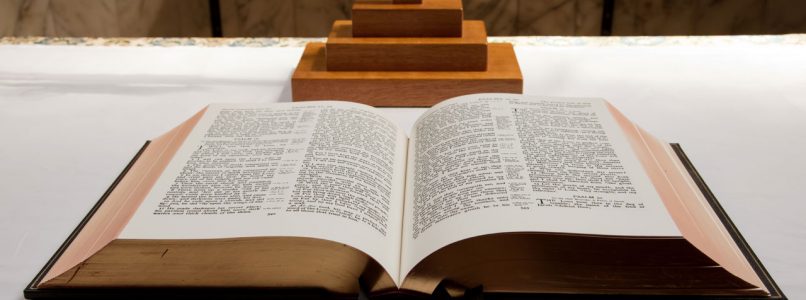One of the many things that disturb me about practitioners of modern Christianity is a reliance on translated text without a mind towards the source material.
When Christians insist that “the bible is clear” on some topic and then point to the English language edition for support – that worries me. It worries me because any translation is difficult and something is always lost in the transition.
I have read Galatians 5:9 where it says that a little leaven makes the whole loaf leaven. What if the translators were pushing an agenda? My theology would have that agenda in it. What if some vital clue was lost? What if some bias was introduced? My theology would be off-kilter too. What if a subtle point was obscured? How would I know I had missed it?
As a complete amateur in the field of linguistics, I am wholly dependant on the translation notes of the likes of Thayer and Strong. I have my suspicions that Strong may have had an agenda with some of his translations. When Strong gives the possible meanings of a word, there is often one (the one that is used) that sticks out as being quite different to the other possibilities. That bothers me. The best I can do is trust but verify.
The Bible was not written in English
I hope it does not come as a surprise to you to learn that the Bible was not written in English. (It was not). The Bible was written in Hebrew and Greek and first translated into Latin. Anyone who reads any of those languages fluently is going to have insights that we, who only read English, lack.
I have learned that some parts of the ancient Hebrew are so obscure that without the Latin version for a comparison, translation into English is only so much guesswork. “I guess my theology is right” does not sound all that trustworthy.
How do I know that what I am reading is what the original author intended?
1 John 4:1 says to test every spirit. I take that to mean: Test every message that is preached. By test, I mean:
- Look and check to see if it measures up.
- Think about it logically.
- Study and make sure.
- Ask questions.
- Be as certain as I can be.
I cannot do that with Hebrew and Greek. The best I can do is check multiple translations and the translation notes. Anything I come up with must be subject to the caveat that it is based on other people’s interpretation. It could be flawed.
Trolls for Christ
Today, we have (what I hope are) well-meaning Christians hounding all and sundry on the Internet bombarding them with the English language translated scripture. Some are doing it in a way that borders on trolling. If there is one thing we can agree on scripture does not teach us to “troll for Christ”.
When the recipient of this Christian trolling knows scripture – in the original Hebrew – better than the Christian, all they are doing is making us all look stupid. When these people also offer a humble and gentle rebuke we have a choice expressed in Proverbs 9:7-9 – learn and be wise or demonstrate our lack of Christ-like-ness.
Humility is the only refuge
When it comes to debating scripture, teaching it, preaching it, or in any way talking about it – our only refuge from looking like fools is to remain humble. Unless we are fluent in ancient Hebrew and Greek, we are dependent on the translation work of others. We see only through the darkened glass of others, to quote 1 Corinthians 13:12.
To pretend we do not suffer from agnosis – a lack of knowledge – is both proud and very, very stupid; not to mention, self-deluded. Have you not read Proverbs 16:18 which says what pride goes before?
For that matter what about Psalm 138:6 and James 4:6? God opposes the proud, but he gives grace to the humble. I will leave it to you to work out if “trolling for Christ” is humble or proud. (Hint: It is not humble at all).
I think it is the time that we Christians climbed down from our high horse and gave up the pretention that we are in any way experts. Proverbs 17:28 says that “Even a fool who remains silent is considered wise”. Let us be wise.







